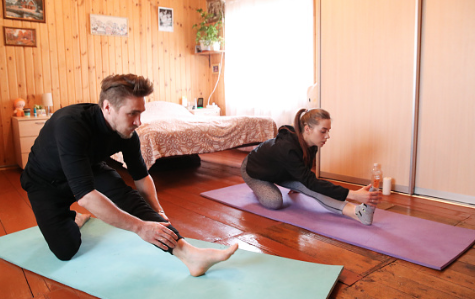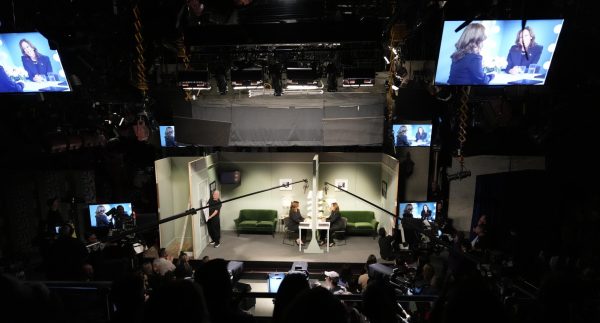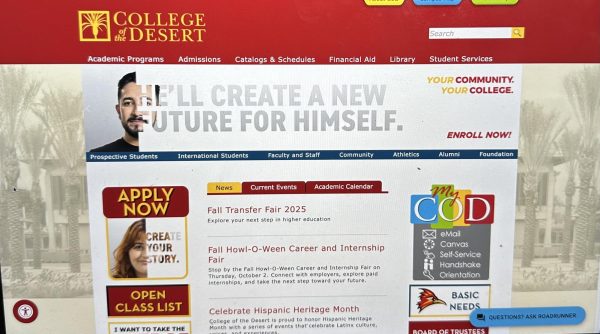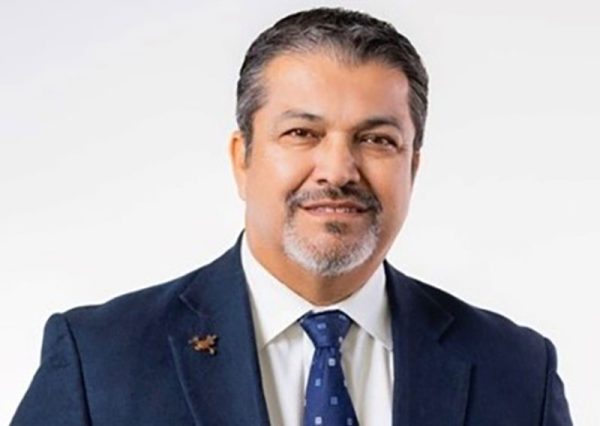Pilates provides health benefits for students

Photo courtesy of Getty Images.
College of the Desert students have shifted to online education. This has caused stress and school pressures for many. Students are learning from their computers at home and managing their own schedules.
But imagine how many hours students are sitting in their chairs, beds, floor while keeping up with their education online. How many hours of sitting or lying in the same posture takes the body into stress?
Pilates is one of those special workouts proven by psychologists and fitness trainers that clarifies one’s mind and gives inner serenity. Pilates is a combination of mind and body exercise. It can be referred to as physical activity, which includes unique internal attention and mindful components. Mind and body workouts focus on training the inner body and have mild physical activity levels compared to other competitive sports, and less injury.
When you exercise, your body releases the chemical dopamine and endorphins to your brain, making a person feel happy and in a better mood. According to the article “The Effect of Mind-Body Exercise on Sustainable Psychological Wellbeing Focusing on Pilates,” mind-body exercise is an effective method to increase psychological wellbeing by focusing on the mind through physical activity. Recently, Pilates has gained popularity as a mind-body exercise, which draws over 9 million participants in the U.S.
Pilates helps with stress and tensions. Stress hormones cause our bodies to have muscle spasms, hypertension, and hours of pain. According to “PilatesBridge Blog,” Pilates relieves tension built up in the muscles through gentle stretching and gradual conditioning. With a combination of body strengthening, some yoga positions, and meditation, it is proven Pilates helps the body release stress and improves our emotional wellbeing.
College of the Desert Kinesiology Pilates Professor Olivia Ellis says, “Pilates is a form of exercise that really connects the mind and the body. Taking the time to focus on oneself, breathing, and the muscles we use in Pilates can be a form of meditation which be very beneficial.”
Being in quarantine and not having many accessible gyms or public workout options, it’s important to stay active. Sitting in a computer for hours can create bad posture. Ellis says, “So much of quarantine revolves around sitting at a computer. While technology has been a powerful tool for connection, it can be challenging to keep great posture when sitting for a good part of the day. Pilates focuses on the muscles that support the spine-muscles that can help people maintain great posture throughout the day.”
When we move, we use several specific areas of our brain, and then the brain sends a neuro impulse throughout the spinal cord to our muscle fibers. Pilates engages certain muscles in a workout. For example, deep core activation, where one uses their abdominals for strengthening, depending on the core workout, you may awaken muscles that have been asleep for a long time. The core consists of twenty-nine muscles, and learning to use them sends new information to your nervous system. The more active you are, the better communication between your brain and other parts of your body.
Pilates exercise improves neurogenesis and the creation of new cells. Pilates writer Scott Wescombe for “Best Body Physio and Pilates” writes, the brain tends to shrink starting from our late 20s. A part of our brain called the hippocampus loses 1% of its volume. The hippocampus plays a main role in memory and cognitive function.
He also writes that scientists used to believe people were born with a certain number of brain cells. However, recently, they found out that our brains could create new cells, delaying or reverse brain shrinkage. The creation of new cells can lead to better memory, reduced risk of Alzheimer’s disease, improved ability to learn and solve problems, a higher IQ, and many more mental benefits.”
The founder of Pilates was German fitness guru Joseph Pilates who is famously known to have cured his suffering of asthma, rickets and rheumatic fever growing up in the 20th century. He became determined to overcome his physical disadvantages and dedicated his life to improving his health and strength. His techniques were focused on breathing to help with his asthma, workout outdoors in his shorts, and cure his rickets, which is caused by a lack of vitamin D deficiency. By the age of fourteen, Joseph conquered his deficiencies, lived an extremely active lifestyle, and created pilates as we know it today.
If he can improve his health and fitness abilities, so can we. College of the Desert students may be in an immovable situation with school shutdown, but there are options such as Pilates where you can do indoors and help live a fit and healthy lifestyle. Help your body, mind and overall wellbeing by including Pilates as an accessible option.
Your body will thank you.








